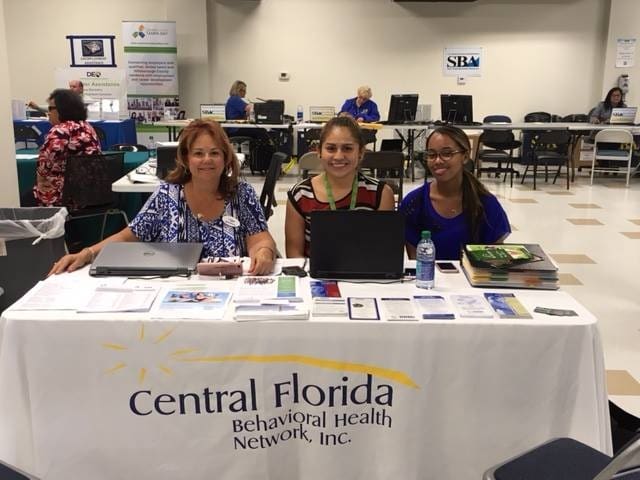
Across the country, some coalitions are managed by a managing entity that sub-contracts with drug-free coalitions. One such contract is with the Central Florida Behavioral Health Network, which has contracted with drug-free coalitions for many years.
“We value what these coalitions do, and they provide valuable services, insight, direction and support to the communities that they serve. It is critical to keep our relationship with drug-free coalitions as they have added so much context, relationship building, and we utilize them in strategic planning and data analysis,” said Niaja Jackson, Prevention Program Manager.
The Central Florida Behavioral Health Network serves 14 counties in the Suncoast region of Florida – ranging from rural to suburban to urban communities. The coalitions focus on substance issues including: underage drinking, binge drinking, opioids, heroin, marijuana use and e-cigarettes.
“We have communities that work really well together. They have support from so many partners and have inroads into the educational system, law enforcement, healthcare and the like,” said Jackson. “I believe that our drug-free coalitions have done a superb job of building lasting relationships partnerships. Each year new ones are added which have resulted in increased sustainability.”
The Central Florida Behavioral Network contracts with coalitions to complete the Strategic Prevention Framework (SPF) process for the county that they serve. The Network depends on the coalition to do the complete framework from data analysis/community needs, creating logic models for the key substances that impact their community, community action plans, implementation and evaluation plans. “This is very vital to us understanding what each community needs and why. If there are service gaps, we look at how we as the managing entity can fill those gaps with providers and/or services that will impact the needed change per the logic model.” The information is then communicated across sites and channels.
The coalitions implement various strategies and campaigns, including “Run for Prevention,” an opportunity to showcase what they are doing, obtaining partnerships and fundraising to sustain the coalition work over time. Operation Medicine Cabinet and National Take Back Day, where community members across the 14 counties can discard any expired or unused medications. Lunch and Learn series, open to the public, are hosted by many throughout the year where a topic is discussed with experts in the field.
The Central Florida Behavioral Network also distributed Deterra pouches after hearing about a project completed with a few coalitions in the past. The Network decided, based on the feedback to support this with all their coalitions. The community needed this alternative option to discard of medicines and keep them out of the wrong hands. Over 100,000 pouches were distributed in the communities.
Additionally, the Network has worked with coalitions to share Public Service Announcements (PSAs) focusing on opioid help, where community members could locate help in the region, and drug disposal. The PSAs focused on where people within the community could go for help and where substance abuse services were provided.
“We value the community responsiveness and readiness, and we always want to position our coalitions to be in the best position possible to respond to the needs of their perspective communities,” said Jackson. “We reward them for their hard work, dedication and advocacy through incentive grants, social media exposure and service awards.”


